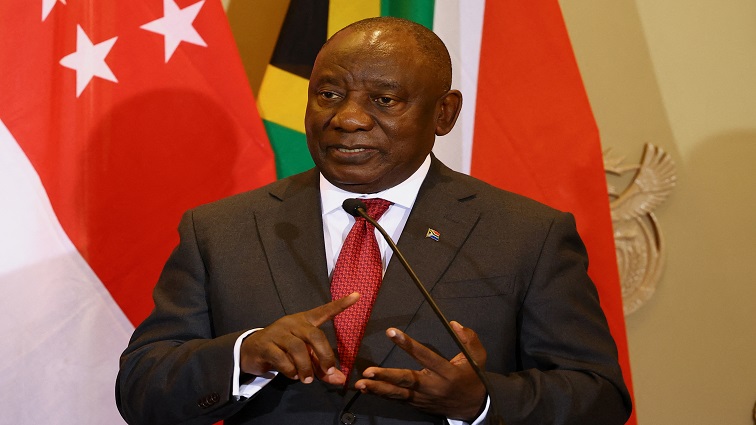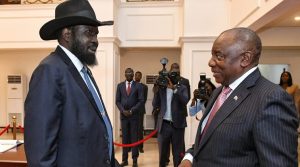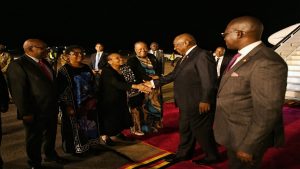The United Nations has confirmed a call between President Cyril Ramaphosa and the Secretary-General regarding an African initiative to push for a peaceful resolution to the conflict in Ukraine.
The UN has reiterated the view that any effort should be in line with the UN Charter and with due regard to General Assembly resolutions.
President Cyril Ramaphosa earlier announced preparations for a peace mission by six African heads of state in an effort to bring the warring parties closer to ending the devastating conflict in Ukraine.
Both Presidents Volodymyr Zelenskiy of Ukraine and Vladimir Putin of Russia are said to be in agreement to receive the African delegation in both Moscow and Kyiv.
Six African leaders in bid for peace in Russia-Ukraine war: Ramaphosa
It’s an announcement that has quickly traveled around the world, as Africa now seeks a leadership role in trying to find a path towards peace in Ukraine.
Ramaphosa says, “My discussions with the two leaders demonstrated that they’re both ready to receive African leaders and to have a discussion on how this conflict can be brought to an end. Whether that will succeed or not is going to depend on the discussions that will be held.”
The UN welcomed the initiative but within the prescripts of international law.
UN Secretary General’s Spokesperson, Stephane Dujarric says, “The Secretary-General did receive a phone call from President Ramaphosa late yesterday afternoon while he was in Jamaica. As we’ve said before, we are in favor of any initiative that could lead us to a peace in line with the charter, in line with international law and in line with General Assembly resolutions.”
This is not the first time non-Western states have taken an interest in peacemaking in Ukraine. The first was an initiative by Mexico last September which proposed a mediation committee that included the Prime Minister of India, Pope Francis and the UN Secretary-General. This was followed by a 12-point position paper presented by China in February which received mixed reactions and a proposal by Brazil in April to establish a contact group of countries not involved in the war to broker peace – none of which has received a formal endorsement from the UN and none delivering any tangible shift in posture on the ground.
The African Union Chairman voiced support for the Ramaphosa initiative.
Comoros President and AU Chairperson Azali Assoumani says, “The difficulty that we have in convincing the two presidents of Ukraine and Russia to have a dialog in order to end up this conflict is important. So we have a lot to do. So to answer your question, so we as the African Union are neutral, although countries could adopt their respective positions. The discussion I had with [Volodymyr] Zelenskyy and I am envisaging to have discussions with [Vladimir] Putin. Charles Michel in Brussels, Europeans are saying that we are better placed to come up with a solution.”
But there are immediate pitfalls that have been flagged by policy think-tank The International Crisis Group.
UN Director for International Crisis Group, Dr Richard Gowan says, “The US and the Europeans are going to view this proposal with some skepticism. There is a concern in Washington, and in European capitals, that South Africa is increasingly leaning towards Russia. And the first task for the African Mediation Group will be to convince Kiev and Kiev’s allies that this is a good-faith initiative that could actually lead to a deal that would satisfy the Ukrainians. I think first and foremost, it’s necessary to convince both sides that this group of African statesmen will actually take everyone’s interests into account. And I think that the Ukrainians are very concerned that there will be a push for a ceasefire and that even if Russia did pause its hostilities, it would simply use that as an opportunity to firm up its control over the parts of Ukraine that it has seized. So, it’s important that the African mediators come saying that, you know, that they’re not just going to freeze Russia’s gains in place, because if that is what the Ukrainians suspect, then they are not going to take this initiative very seriously.”






